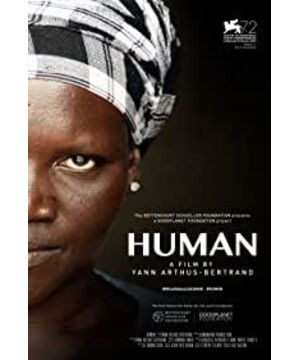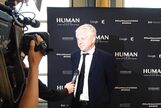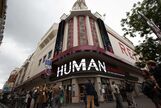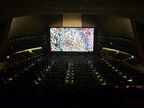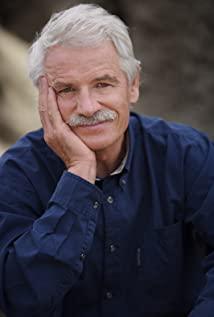What is impressive is the headshot of each interviewee. They not only reveal their lives in front of advanced photographic lenses, but also present every wrinkle and every subtle expression in front of the audience. Sometimes the flies stopped on the heads of the interviewees, as if greedy for the old man's rotten and aged skin, hovering and refused to leave. There is no fancy editing, or even more details about the identity of the interviewee. Their straight eyes are enough to convey all things in the world and the difficulties of being born.
If those lives are too far away from us, the famous special article "In Beijing, 20 Million Ways to Die" published in "People" Weekly before the Spring Festival in 2014 may be even more shocking. In life, it is easy for us to experience the inequality of life, race, region, rich and poor, and sexual orientation, but it is probably hard to imagine that there is a huge insurmountable gap in death.
I still remember the article mentioning a young girl who fell from a building wearing a Dior coat when it was delivered. She has been lying in a single cold storage room charging 800 yuan a day for more than a year. The family hung up magnificent thangkas in the room and regularly delivered offerings such as hairy crabs.
Sometimes we think that we have seen enough of the complexity of the world, but maybe the pattern is still not big enough, and you feel that your life is terrible.
There is a voice from China in the documentary. The young woman is a female worker on the production line. She calmly tells how inhumane the factory system is: every hour you have to check the amount of your homework completed, and that is almost impossible to complete. If you fail to meet it, you will need unbearable words from the superiors. Insult, can only drink very little water, reduce the time and frequency of going to the toilet. "Too tired, really tired. But, I can't help it." The thin woman almost cried, avoiding the camera and looking away.
Yesterday after the smog in Beijing, I saw reporter Shi Feike wrote on Weibo: “APEC and the military parade have all proved that in order to reduce smog, the only non-heating season is to suspend production and restrict travel within a radius of 500 square kilometers around Beijing. The canteen is closed for stoves, which means that you must sacrifice GDP and the vital interests of the wider community to get good air in 49 cities. You don’t let people start work, don’t let people drive, don’t let people burn stalks, and don’t let people eat and warm up. Yes? You live in Beijing? People in Shijiazhuang, Baoding, Handan, Dahebei, Pan-Gyeonggi area are all ants?"
Yes, this is the question: Who should become ants?
So the deepest impression from watching the entire documentary is that we seem to be very different-I am afraid it is destined from the day of birth-we continue to prove ourselves in our different fields, encounter discrimination, and rise to the difficulties to overcome humanity. There are many propositions between them, such as conflict, reconciliation, love, marriage, family, gender equality, homosexuality, economic status, refugees, disease, poverty. But you soon begin to understand that all beings are suffering, and that all beings have different sufferings, but we are the same in the most subtle places: we desire to be loved, to work, and to create, and to have a more specific and interconnected relationship with a wider range of others. Let life enrich itself and solve the pain of love.
Whether it is a death row sentenced to life imprisonment, a gay in Lebanon, or a young man who escaped from the genocide in Sudan, we exist, we become a person who cannot be replaced in someone’s life; we are forgotten, what we pursue Beyond our own needs.
My favorite Ph.D. in anthropology, teacher Dan Leopard, comforted us this way: resisting impermanence is by doing meaningful things, not by taking advantage of life, winning by strategy, or usually fleeting sense of success. Do what you think is right, give to what you think is meaningful, not for personal gain.
All the superiority, all the happiness, all the extravagance, all the loss, all the unsatisfactory feelings were blocked in front of this documentary called "Human".
I remembered that people often told me before, why do you want to be so literary? Can't you live your life like others? What is the meaning of thinking so much? Faced with such questions, I often have no answers. Until one day, a friend told me: Others are wrong. People should think more. Living numbly has no meaning. If you want a broad life, you must live consciously.
Only use her words to encourage everyone.
View more about Human reviews


